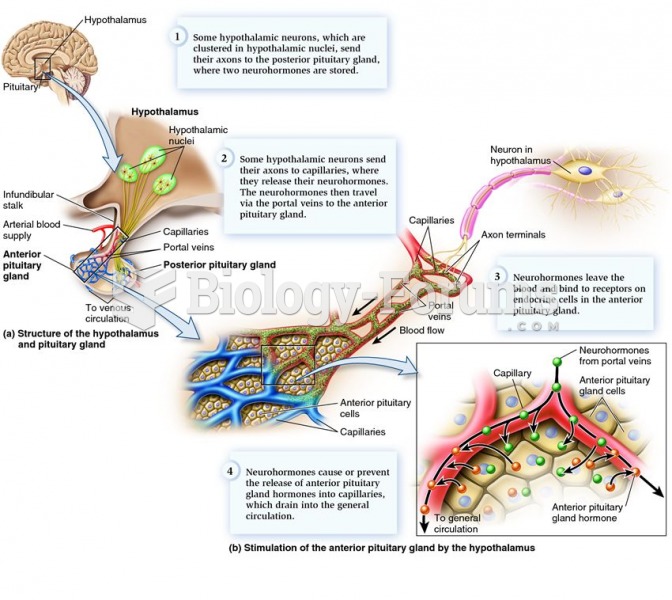|
|
|
The most common treatment options for addiction include psychotherapy, support groups, and individual counseling.
Urine turns bright yellow if larger than normal amounts of certain substances are consumed; one of these substances is asparagus.
According to the Migraine Research Foundation, migraines are the third most prevalent illness in the world. Women are most affected (18%), followed by children of both sexes (10%), and men (6%).
The first-known contraceptive was crocodile dung, used in Egypt in 2000 BC. Condoms were also reportedly used, made of animal bladders or intestines.
According to research, pregnant women tend to eat more if carrying a baby boy. Male fetuses may secrete a chemical that stimulates their mothers to step up her energy intake.







